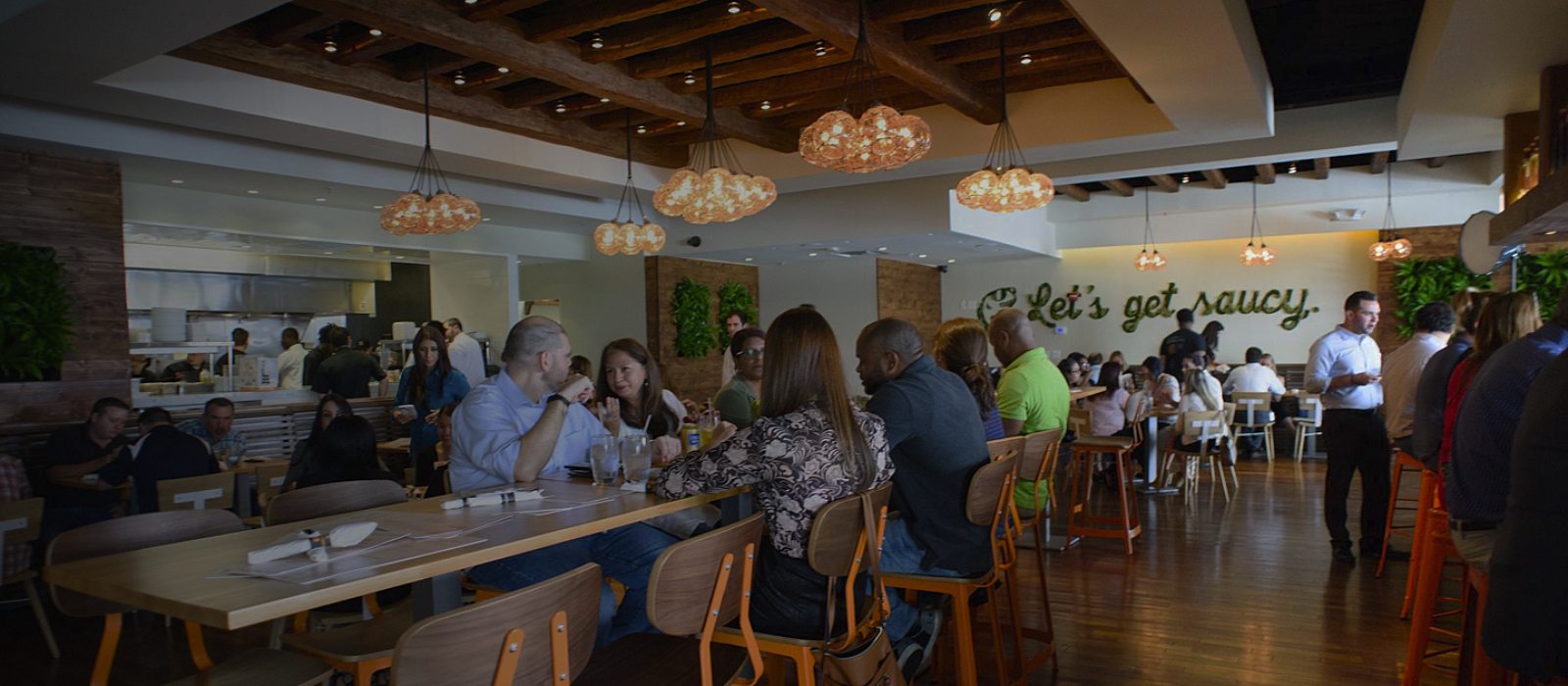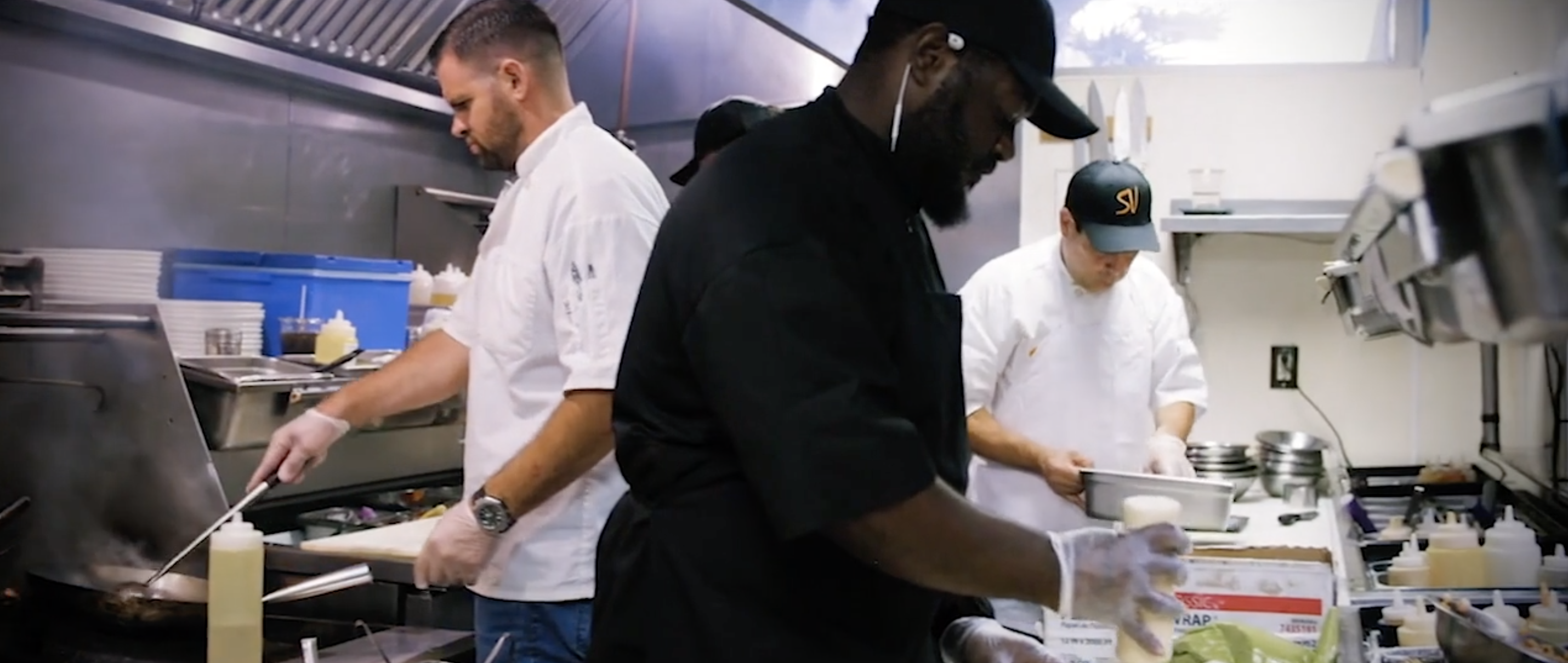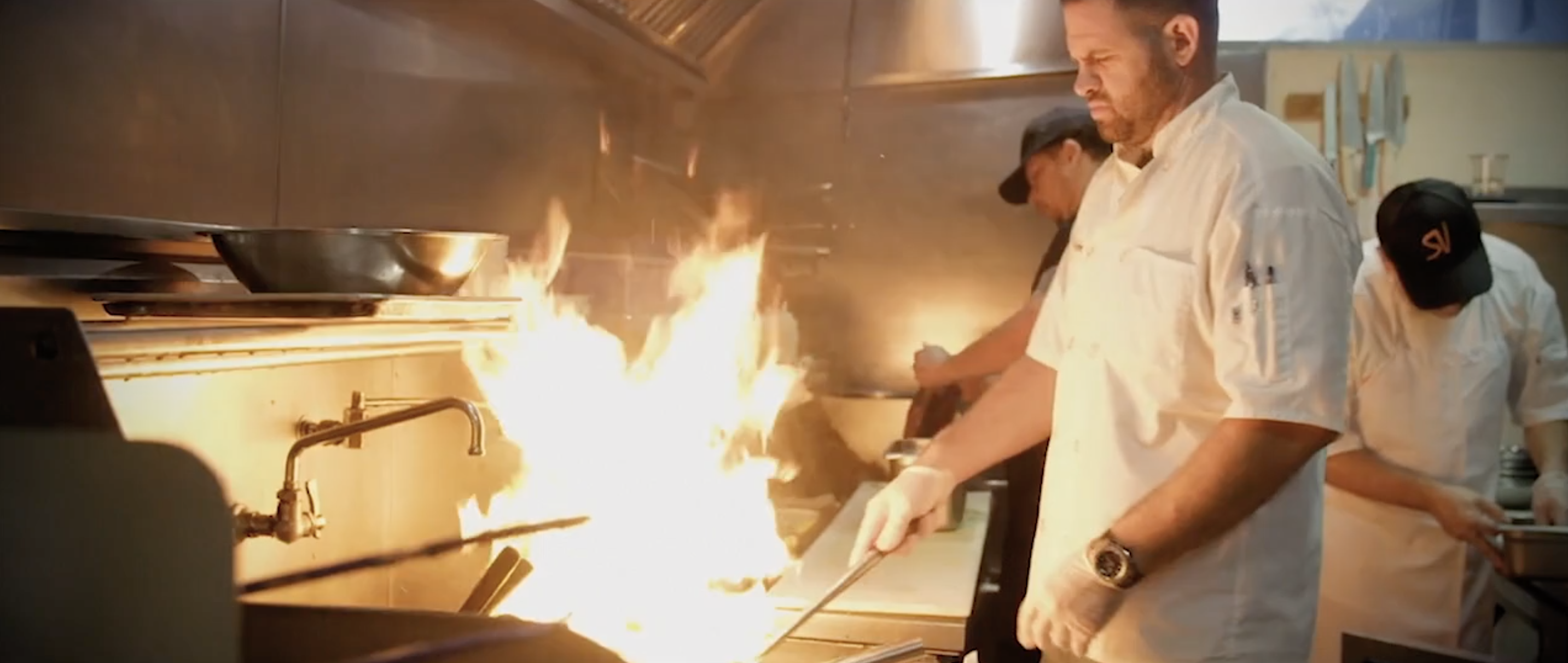
Ryan Egozi Says Hire for Moral Fortitude, Train Later
If you take the time to hire (and train) people whose values align with yours, you won’t be replacing them any time soon.

Dahlia SnaidermanAuthor
There’s a phrase that every restaurant owner dreads hearing: “Hey, I’m sorry, but I got another job.” And when it’s your best employee saying it, it sucks even more.
The restaurant industry is at the height of a labor crisis. It’s a buyer's market for restaurant staff right now: America has a surplus of restaurants with not nearly enough talent to go around. So if a member of your restaurant staff were to leave because they were unhappy working in your restaurant, they have a ton of choice when deciding where to go next. This means restaurant owners and managers have heard that phrase more often in the past few years than they ever have before.
The answer to dealing with this labor shortage is different for every restaurant, but at SuViche, in Miami, FL, they’re doing a little bit of everything to create an environment that’s enjoyable and sustainable for all their workers, and they’re adapting their hiring practices to find the right employees.
SuViche was created in 2010 by brothers Aliosha and Andrei Stern, along with acclaimed Peruvian chef Jaime Pesaque. In 2012, Ryan Egozi joined the team, and today he’s director of operations for the restaurant group’s 11 locations.
During the past seven years, Ryan has been a jack-of-all-trades at the restaurant, driving from location to location and stepping in wherever he’s needed: as a manager, an IT guy, a mentor, or an HR rep.
Though he’s still spinning a lot of plates, his HR days are now over. “Up until three weeks ago, I was our HR guy,” Ryan told us back in June. As of this past summer, he's free to focus on the many other elements of his job because SuViche hired their first HR staff member. It’s still uncommon for a restaurant to have an HR rep, but it’s a huge step forward in building work environments that are safe, fun, and fair for everyone. The team now has an experienced, specialized person dedicated to making SuViche a best-in-class restaurant employer. This shows prospective employees they give a damn about their team.

Restaurants deal with the absurdly high turnover rate as if it’s an unavoidable reality of the industry, says Ryan. “Beforehand, it was a turnstile. We had 300% turnover and that’s how it’s gotta be, and we're going to replace this position three times every month, and there's nothing that we can do about it. But that's not sustainable,” he said.
Ryan explained that now SuViche hires for cultural fit over skills. “I think we went through a period of looking for skilled people and finding that they just didn't fit in with our values.”
SuViche’s core values are initiative, innovation, continuous improvement, empowerment, openness, timeliness, intimate technical knowledge, and commitment.
“[So] instead of trying to instill values in a human being, which is difficult, it's much easier to train somebody who comes in with high moral fortitude and a high level of integrity on how to cut up sushi rolls.”

So far, it’s been working. “Our turnover has always been historically low. I think we do a very good job: the people that we have stay, and the employees that we do lose, they leave and they're knocking on the door shortly thereafter, asking to come back.”
After they’ve hired new candidates onto the team, SuViche creates a rewarding work environment to get their staff to stick around.
For one, they’re on the path to providing health insurance to all their workers. “We provide our team members with health insurance as much as we can,” said Ryan. “And it’s not because Obama told us to or because it's what the government wants, but because it's the right thing to do.”
While it’s not yet in the budget to provide it for every section of workers in the 11-location restaurant group, SuViche is working on it.
Ryan chooses to be completely transparent about the difficulties around providing health insurance. “As much as we can afford it, we will,” he said. “There's times when we can't afford it, and that conversation takes place: ‘Listen, we're not ready to provide this portion of the company health insurance because it's an expense that's completely unviable, but it's on the roadmap and we’re working towards it. And we're going to do whatever we have to do to make it happen.’”
Ryan knows that most restaurant workers don’t get health coverage through their jobs and end up uninsured. Ask anyone in any restaurant community in the U.S. — they’ve likely seen their fair share of health emergency crowdfundings for this reason. By finding ways to make it work, the SuViche leadership team shows staff they actually care about their health and wellbeing. Ryan says this of his team:
“You guys deserve to be covered. You deserve to be helped by your employer.”

After thinking strategically about the workplace benefits their staff needs, the SuViche team took on the development of a revenue-sharing program for their back-of-house employees — or, as they say at SuViche, the “heart of the house” employees. Because Florida is one of the states where it’s illegal to tip out workers who don’t have contact with customers, SuViche wanted to find another way to give them financial bonuses.
The restaurant’s food costs and sales numbers are shared with all kitchen employees and dishwashers so they can directly see the impact of their work. Every week, employees are graded on certain metrics — like kitchen cleanliness, for example — and if goals are met, the employees get to split 1% of the sales they’ve helped generate. “It comes in to them on their check, like a bonus. It's not part of their hourly wage, it's just an extra 300 bucks or 100 bucks or 500 bucks, whatever the case may be,” said Ryan.
This system empowers and incentivizes kitchen workers to make smart decisions that are good for the business. “And it's cool for them,” said Ryan. “You know, they’re $15-$16-$18-an-hour employees, and they get to really participate. They see that the extra steps they take throughout their day resonate with the business and that the business is prepared to compensate them for it.”
Ryan wants every staff member to feel appreciated. When front-of-house workers have tips to walk away with after a good shift, back-of-house workers deserve that kind of boost, too. “You have to do something like that, you have to involve your kitchen,” said Ryan, “because at the end of the day, without the dishwasher, there's no clean plates and nobody gets food.”
This initiative also teaches workers valuable, transferable skills about running a business. Most line cooks don’t get to learn the intricacies of COGS or food cost or what it takes to keep a restaurant business profitable. “So as long as we're 5% profitable or more, then 3% of that profit is assigned to the managers, and it gets distributed based on their evaluation.”
In terms of his management style, Ryan creates an open environment where employees know they can approach management with any problem. He tells his employees, “I'm nobody's boss. Don't make me your boss, ‘cause I'm not. I'm here to help you.”
Whenever problems arise on a SuViche team, the issue is taken seriously and addressed with all parties encouraged to speak openly. “We like to focus on openness then make sure everybody feels comfortable talking to whoever. And that's very difficult. If people fear for their jobs, it makes it very difficult to come to your manager and tell them you're upset.” If an employee has an issue with a manager, says Ryan, “It’s very much about sitting down with them and putting a round table together and asking the team members to come in and speak frankly, honestly, and openly.”
And that’s how SuViche fights the restaurant labor crisis: by hiring for culture, by offering meaningful benefits, and by building an open, safe, and educational workplace for their team.
Ryan and the SuViche team trust Toast to help them run their restaurants. Schedule a demo below.
Related Restaurant Operation Resources
Is this article helpful?
DISCLAIMER: This information is provided for general informational purposes only, and publication does not constitute an endorsement. Toast does not warrant the accuracy or completeness of any information, text, graphics, links, or other items contained within this content. Toast does not guarantee you will achieve any specific results if you follow any advice herein. It may be advisable for you to consult with a professional such as a lawyer, accountant, or business advisor for advice specific to your situation.
Read More
Subscribe to On the Line
Sign up to get industry intel, advice, tools, and honest takes from real people tackling their restaurants’ greatest challenges.


